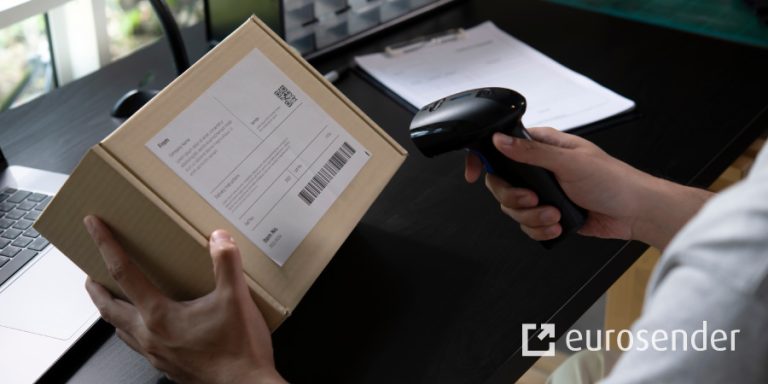Traditional mail and its sending process
TL;DR
- Snail mail refers to physical mail, slower but more personal than email, and ideal for sending official documents.
- Pros: Tangible, more personal, and less vulnerable to hacking.
- Cons: Slower, less convenient, can be expensive, and may be lost or stolen.
- To send snail mail, use a proper envelope, securely seal it, address it correctly, and drop it at the post office or mailbox.
Nowadays, we have gotten used to sending e-mails, text messages, jumping on Zoom calls, and signing documents online. That is why many believe snail mail is becoming a thing of the past. However, many companies and individual individuals still prefer to send important documents, invoices, and letters the “old fashion way”. In this article, we will provide you with an overview of what snail mail is and how to send it.
Create an account for free!
What is snail mail?
A safe place for delivery is a location where the courier can leave the Snail mail is an informal term for physical mail, the traditional method of sending written messages through postal services or post offices. The term came into use in the early 2000s as e-mail became increasingly popular. It is a playful reference to the fact that physical mail is much slower than e-mail.
What are the pros and cons of snail mail?
Pros:
- Snail mail is a more personal way to communicate than electronic communication. A handwritten letter shows the sender has taken the time and effort to write a message specifically for the recipient.
- It is more tangible than electronic communication. You can hold a letter in your hands and read it repeatedly.
- Snail mail is less susceptible to data hacking or power outages. Plus there is no need for internet connection when sending snail mail.
- It is considered more appropriate for certain types of communication, such as sending official or legal documents. For example, many government agencies require that certain forms be submitted by mail.
Cons:
- It is slower than electronic communication. It can take several days or even weeks for a letter to reach its destination, while e-mail can reach a person in seconds.
- Snail mail is less convenient than electronic communication. You must go to a post office or mailbox to send or receive snail mail.
- It can be more expensive than communicating with people online. Postage rates can vary depending on the weight of the shipment and its final destination. You can’t simply send a letter without a stamp when using the post office, so make sure you factor these costs in.
- It can be lost or stolen in the process of shipping.
You may also be interested in:
How to send snail mail?
Here are the steps on how to send snail mail:
- Choose a suitable envelope and postage. The type of envelope you use will depend on the size and weight of your shipment. When sending envelopes via snail mail internationally, use a more sturdy envelope, which will protect your mail contents during transit.
- If necessary, wrap the item or document in extra material for better protection.
- Place the document inside the envelope and seal it. Be sure to seal the envelope securely so it does not open during transit. Use duct tape if needed.
- Address the envelope correctly. Be sure to include the recipient’s full name and address, as well as your return address. If you need more information, check our guide about how to write the address on an envelope.
- Drop off your letter or envelope at the post office. You can also mail your envelope or package from a mailbox or use a courier for your delivery instead. Check out our Document Service options if you want to send your documents without even leaving your house!
What can you send via snail mail?
With snail mail, you can send out envelopes, letters, postcards, and stationery.
Usually, people use envelopes to send out paper documents or letters. Here are some examples of what you can send with Eurosender in an envelope using our Document Service:
- Contracts, commercial and legal documents;
- Passports, visa applications;
- Medical records and other personal documents;
- Business cards, catalogues, leaflets, brochures;
- Personal letters to loved ones;
- Any other paper document.
Note: Some items are not allowed and cannot be shipped by snail mail in an envelope. For example:
- Cash;
- Bank checks or credit cards;
- Any other iteams that are not made from paper.
How long does snail mail take to arrive?
The time it takes for snail mail to arrive depends on the distance it needs to travel, the type of shipping service you use, and the current workload of the postal service (postal offices and courier companies end up having more work in December due to Christmas holidays, so keep this in mind).
With our Document Shipping Service, you can send envelopes worldwide in 24-48 hours.

You may also be interested in:
Tracking snail mail
Some mail items, such as letters, may not come with a tracking number when using standard postal service at your local post office. This could be concerning, especially when sending important documents and letters. Every document shipped with us receives a unique tracking number, which you can use to follow your document and its delivery at any time.
Still have questions?
Check our articles that answer the most common questions about shipping.
Create an account for free!
About the author
Marcel Nahtigal is Head of Marketing at Eurosender, specializing in digital strategies to enhance customer connections in logistics.






